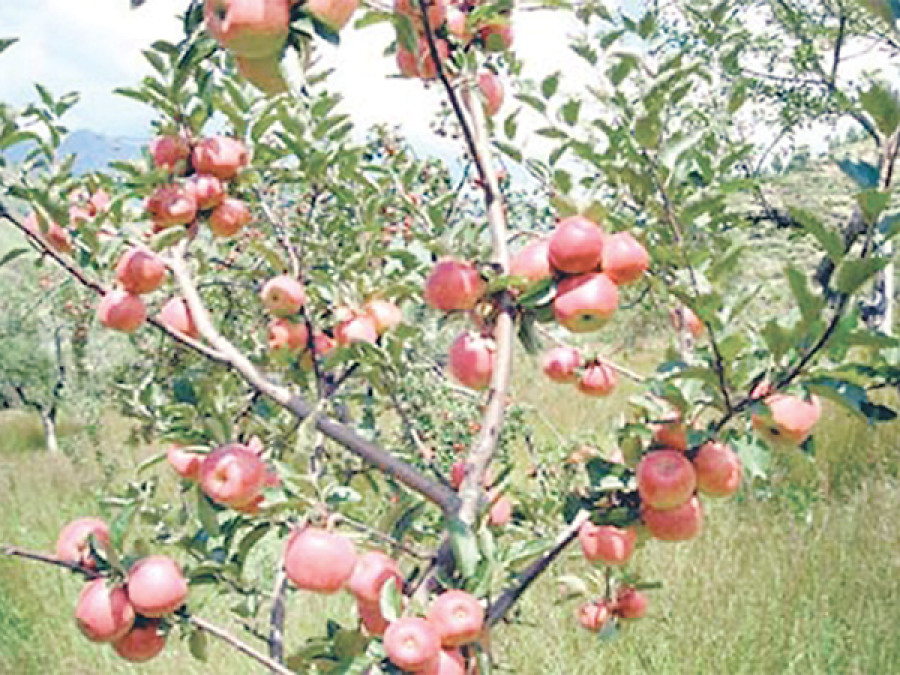Money
Jumla apples push out imports from market
Until a few years ago, apples produced in Jumla had to be dumped for lack of buyers while the market was flooded with imported fruits, particularly from India.
Moti Lal Poudel
Until a few years ago, apples produced in Jumla had to be dumped for lack of buyers while the market was flooded with imported fruits, particularly from India.
Things are very different now, as organic apples grown in this far western district of Nepal have become widely popular among Nepali consumers. Bablu Raini, who has been selling fruits for the last 18 years, said that Jumla’s apples had displaced imported products. “Nowadays, an increasing number of customers prefer apples from Jumla. They don’t even ask for Indian products.”
As Jumla’s organic apples are relatively cheaper and of better quality compared to Indian apples, they are becoming increasing popular. After the unofficial trade blockade imposed by India, imported products have stopped arriving in the market.
However, Raini said that some fruit sellers had been passing off apples from Jumla as imports from Shimla, India. Jumla’s organic apples cost Rs80 to Rs120 per kg in the retail market depending on the quality. In the wholesale market, their prices range from Rs70 to Rs80 per kg.
Another fruit trader Prabal Shahi said that he was busy shipping Jumla apples to market these days. He has supplied 400 tonnes of apples to Pokhara, Kathmandu and Surkhet so far this season. “Demand is growing at a fast rate,” he said. However, due to the highway blockade, he has not been able to fulfil the requirement. Last year, Shahi had supplied 152 tonnes of apples to different markets.
“Due to the widening road network in Nepal, apples from Jumla can now be shipped to different parts of the country,” Shahi said, adding that he had stopped selling Indian apples for the last three years. He said that he had kept 60 tonnes of apples in stock for the upcoming Dashain and Tihar festivals.
Similarly, traders said that demand for Jumla’s apple had swelled after the unrest in the plains and highway blockades.
Narbir Rawat, central member of the Federation of Nepalese Chambers of Commerce and Industry and immediate past president the Mugu Chamber of Commerce and Industry, said that apples from Karnali had been gaining popularity due to the extended road network, and that growers had been able to get a fair market price too.
“In past years, apples produced in the Karnali region used to rot on the trees due to lack of market access,” he said, adding that now they had become a key source of income for the region’s people. Rawat has decided to plant 700 apple saplings this year.
The farm gate price of apple is Rs50 per kg. Last year, the Karnali region produced 14,000 tonnes of apples. The production in Jumla, Mugu and Kalikot amounted to 3,990 tonnes, 2,923 tonnes and 5,115 tonnes respectively. Likewise, Humla and Dolpa produced 1,438 tonnes and 532 tonnes of apples respectively.




 11.36°C Kathmandu
11.36°C Kathmandu















